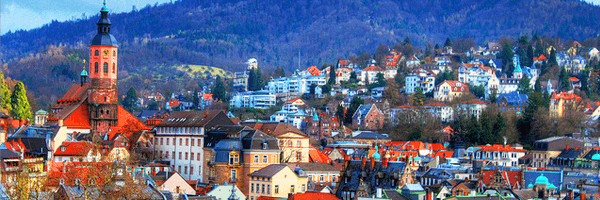As budgets gradually expand, more companies are beginning to reconsider and restore incentive programs. Incentive programs provide employee recognition and reward behaviors that create a more positive work environment, stimulate productivity, and inspire loyalty. Trip incentives are one of the most appealing sales incentives managers can offer. People place unique, emotional and psychological value on travel experiences.
Why Consider Incentive Travel?
When the economic crisis of the late 2000s set in, budgets for trip incentivess were often one of the first that companies slashed. According to Incentive Research Foundation (IRF) studies, “By the height of the recession in late 2009, Pulse Surveys showed over 80% of planners were decreasing their incentive travel budgets either moderately or significantly, with virtually zero growth from any side of the market.” From 2011 and onward, however, incentive travel budgets began to increase as the economy slowly improved. By 2014, IRF found that at least half of financial planners anticipated increasing their incentive travel budgets.

With greater budgets to work with and a population that is once again looking forward to employment perks, it’s time for managers and employers to start reconsidering travel incentives. Not only do today’s managers have more freedom to offer travel incentives to motivate and reward their sales teams, but they have the advantage of travel incentives being a fresh and exciting option after the era of stringent recession budgets.
Why Is Travel So Motivating?
Travel tends to be a greater motivator than cash or merchandise because it is more meaningful and memorable. The motivations to receive rewards like cash bonuses are fairly standard. Most people use cash to stay stocked on necessary items or to live a little more comfortably. Travel motivators, on the other hand, are unique and complex. Travel incentives are significant because of the experience value they can offer, and because of the notoriety associated with travel. When being the best salesperson means taking an exotic, corporate-sponsored trip, enjoying sunshine or cuisine in photographs, and sharing face time with high-level executives, competitive performances are inevitable.

The Society for Incentive Travel Excellence (SITE) released an in-depth survey in 2013 examining travel reward program participants’ thoughts on travel. SITE found that almost all participants said they were motivated by their travel reward, even those who did not reach the goal to receive the reward. It’s clear that travel incentives are very effective motivators. There are multiple reasons travel in particular is such a compelling goal:
A Visible Reward
Of all incentives, travel has the distinction of being the most discussion-worthy and, in our social media-centric society, the most shareable. Being selected among the top 20 salespeople to go on a corporate trip to Costa Rica is an honor that salespeople can brag about. With travel rewards, the sense of accomplishment is not only powerful but reoccurring. It satisfies confidence and a sense of competitiveness again and again, with each photo uploaded and each updated status message. This highly visible success promotes not only the salesperson receiving the reward, but the company itself and the company’s region.

The Opportunity to Network with Co-workers
One of the things that draws salespeople to group travel is also something very beneficial to management: the desire to network within and establish stronger bonds with co-workers. SITE found that nearly 2 out of 3 survey participants saw interaction with higher level executives as a motivator to traveling with their work group. Building relationships with peers outside the daily work environment was also a motivating factor for 72% of the respondents.
Support among employees is vital to managing a successful sales team. Not only can group travel incentives inspire salespeople to work harder to earn travel rewards, but being together during group travel or corporate events also promotes healthier work relationships and attitudes. The majority in SITE’s survey said they felt increased loyalty and more like a part of their company after earning travel rewards.
The Value of Experience
People value experiences because they are very hard to reproduce and can create lifelong memories. Positive experiences translate into nostalgia for a very specific and irreplaceable moment. While cash and merchandise rewards can indirectly lead to experiences, incentive travel is itself an experience. Travel involves multiple senses: feeling Caribbean sunshine on the skin, tasting gourmet Parisian cuisine, or listening to live New Orleans jazz all leave lasting imprints. The motivation to travel is powerful because people love to experience life in new ways. Deven Crane, Senior Account Manager at Incentive Solutions, says, “Cash bonuses are gone as soon as you spend them, but you can’t erase an experience. You won’t forget how vine-ripe tomatoes in Venice tasted.”
Most (70%) of the SITE survey participants were motivated by the chance to experience something outside the realm of their everyday possibilities. TripAdvisor’s annual traveler survey also found that 71% of global travelers were motivated by “enhancing perspective.” They found that today’s travelers appreciate opportunities to experience new cultures and events. Most who took the survey reported that they preferred unique to “pampering” experiences.

The Chance to Recharge
Being outside of one’s typical environment is not only valuable because of the new experiences it can provide, but it offers relief from the multitude of stresses built into everyday routine. TripAdvisor reported that many who took their survey listed “restor[ing] my sense of harmony and balance” and “giv[ing] me time out to think and regain control of my life” as major motivators in traveling.
Every salesperson (even those who thrive on challenging workloads) needs down time. It is in a manager’s best interest that his or her sales team relax now and then, clear their minds, and return to tasks with fresh perspectives. Group travel with peers and leadership together in a more freeform environment promotes energized idea-sharing and enthusiasm for corporate goals.
Brighter economic landscapes have made budget expansion a reality for many companies. Budget expansions, in turn, open up options to reward employees and motivate them to excel. Travel is one of the strongest motivators among incentive options because it leads to unique experiences, vivid memories, and a refreshed state of mind. From a managerial perspective, incentive travel comes with the benefits of strengthening employee relationships and instilling company loyalty.



